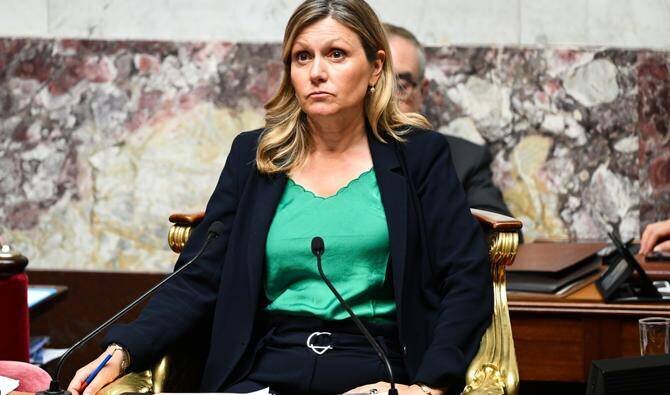
French Politicians Accused of Islamophobia Over Schoolgirls' National Assembly Visit
A recent controversy surrounding France's ban on religious symbols at school has erupted after a group of Muslim schoolgirls visited the National Assembly wearing hijabs.
The debate over France's ban on religious symbols at school has resurfaced following a visit by a group of Muslim schoolgirls to the National Assembly, all clad in hijabs.
Yael Braun-Pivet, the assembly’s speaker and a member of President Emmanuel Macron’s centrist Renaissance Party, described their presence as 'unacceptable' under France's secularist laws.
Critics, however, accused her of Islamophobia and argued that she was adopting tactics reminiscent of the far-right by using restrictions on religious clothing to target Muslims.
In 2023, France banned students from wearing the abaya in public schools, a move that has fueled ongoing debates about secularism and religious freedom.
The ban on religious symbols applies equally to all faiths, including Christianity, Judaism, and Sikhism, affecting students in public schools nationwide.
The issue of school outings also became contentious as some argued for consistency in applying these rules outside the classroom.
The images of the girls’ visit sparked widespread discussion, with some politicians expressing outrage while others accused them of Islamophobia.
Paul Vannier from the far-left France Unbowed party criticized Braun-Pivet's misunderstanding of secularism and her purported use of it against Muslims.
Marine Tondelier from the Greens pointed out that the National Assembly’s rules do not explicitly ban women from wearing hijabs in the public gallery, suggesting a broader issue with tolerance within political ranks.
This ongoing controversy reflects France's fraught relationship with secularism and its application towards religious practices, particularly within minority communities.
Yael Braun-Pivet, the assembly’s speaker and a member of President Emmanuel Macron’s centrist Renaissance Party, described their presence as 'unacceptable' under France's secularist laws.
Critics, however, accused her of Islamophobia and argued that she was adopting tactics reminiscent of the far-right by using restrictions on religious clothing to target Muslims.
In 2023, France banned students from wearing the abaya in public schools, a move that has fueled ongoing debates about secularism and religious freedom.
The ban on religious symbols applies equally to all faiths, including Christianity, Judaism, and Sikhism, affecting students in public schools nationwide.
The issue of school outings also became contentious as some argued for consistency in applying these rules outside the classroom.
The images of the girls’ visit sparked widespread discussion, with some politicians expressing outrage while others accused them of Islamophobia.
Paul Vannier from the far-left France Unbowed party criticized Braun-Pivet's misunderstanding of secularism and her purported use of it against Muslims.
Marine Tondelier from the Greens pointed out that the National Assembly’s rules do not explicitly ban women from wearing hijabs in the public gallery, suggesting a broader issue with tolerance within political ranks.
This ongoing controversy reflects France's fraught relationship with secularism and its application towards religious practices, particularly within minority communities.










